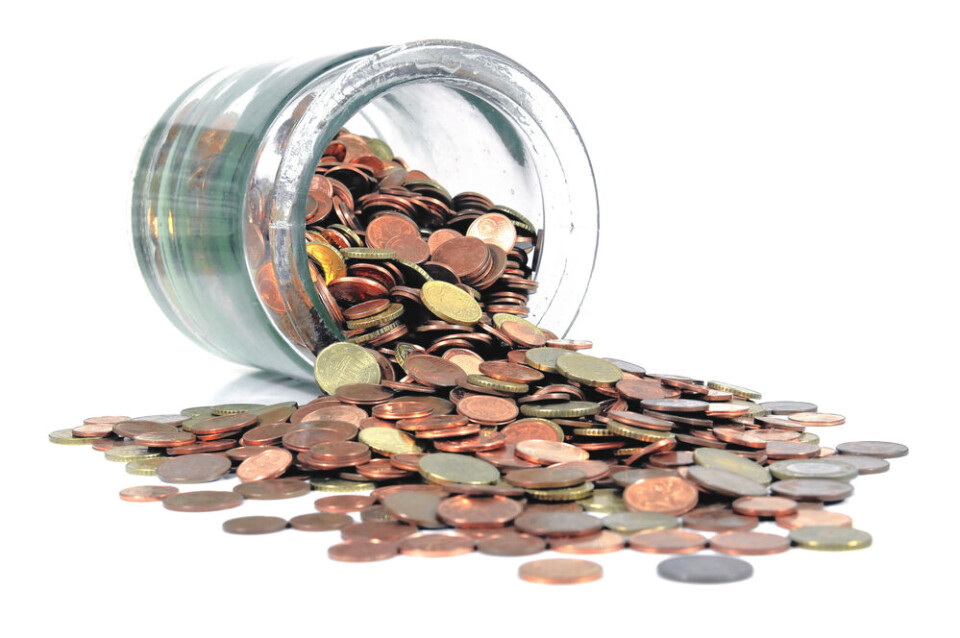-
Three ways to make bank transfers in France despite Easter pause
Traditional payments are unavailable over four-day period
-
Can a French bank account be opened before moving?
Online and physical banks compete with brokers in finding best solution for those on the hunt for a property
-
Cheque use falls in France - but fraud levels remain high
The traditional payment method is still popular with many
What can I do with my old euro coins in France?
There are several different ways to move on smaller coins

Reader question: We have been living in France for five years and have accumulated a lot of smaller coins. In the US we used a machine to exchange old coins. What can we do with them?
As in a number of other countries, small coins like one, two, five and even 10 and 20 cent coins in Eurozone countries are almost becoming obsolete, and rarely used for daily transactions.
People often hold onto them, placing them in a jar to accumulate.
Before you dispose of them do be aware that certain euro coins are in demand and avid coin collectors can pay several times their face value for them.
Sometimes it can be worth having a quick look through the coins you have – this website offers some average prices for such coins.
However if you prefer just to dispose of the coins as easily as possible, we cover the main ways of doing this below.
Using coin exchangers
A number of supermarkets in France have coin exchanger booths set up. They are usually run by Coinstar, a US company, so will work under the same premise you are used to.
Any amount or combination of coins can be deposited freely – as long as they add up to more than €1 overall – and once all are counted, you will be given a voucher you can use to exchange for cash at the shop’s till.
The machines add around a 10% service charge, but this is the easiest and quickest way to deal with your old coins.
Depending on the shop where the machine is located, or the machine’s operator, slightly different rules will apply to the voucher you receive.
For example, some other providers (such as Eurocycler) do not charge a service fee, but vouchers must be used solely for shopping in certain locations (and in one go) or they become invalid.
A list of machines to deposit old coins can be found here.
Depositing the money at your bank
Some banks accept deposits of coins into your account.
However, the exact rules can change from bank to bank, so you should research or ask your bank if they accept these deposits first before taking your coins to a branch.
At some Credit Agricole branches or at the Société Générale, for example, they will give you small coin bags to put your coins in, which you can fill up, placing inside a slip with the value written on it. You can then deposit them into special machines at certain branches.
There will usually be a slight delay before the amount is credited on your account. In some cases the amount credited could also be subject to a readjustment in following days if the count is found not to be accurate.
Use them in shops
Small change can of course still be used as legal tender in shops, bars, restaurants, and any other place where you are able to pay in cash.
Shopkeepers risk a fine if they do not accept cash payments and anything under the value of €1,000 can be paid for solely in cash, if the buyer wishes.
However, shopkeepers can refuse if they believe the amount of small coins being included in the transaction is too large. “No one is obliged to accept more than 50 coins if being paid in cash,” says the Banque de France.
Even if they accept the coins, paying solely with small coins in shops is not likely to make you any friends with shopkeepers or others in the queue behind you. It may, however, be quicker in certain small shops, especially bakeries, that have machines to put your money into called un monnayeur automatique.
Self-service checkouts in supermarkets also accept coins in some cases.
Read more: Can shops in France refuse to take payments in cash?
Donating them
Another option is donating the coins – the Pièces Jaunes drive is organised annually by the Fondation des hôpitaux, and encourages people to donate any coins they have, accepting anything and everything from one cent to two euro coins.
The exact dates change each time, but are usually within the first couple of months of the year, and run for about three weeks.
The coins can be dropped off in collection boxes around the country, including in La Poste offices and in many high street shops.
One advantage of this route, in addition to the fact you are supporting a good cause, is that you do not need to count the coins.
Related articles:
Five French alternatives to leaving money in current accounts
In which cases will shoppers still be given paper receipts in France?
























